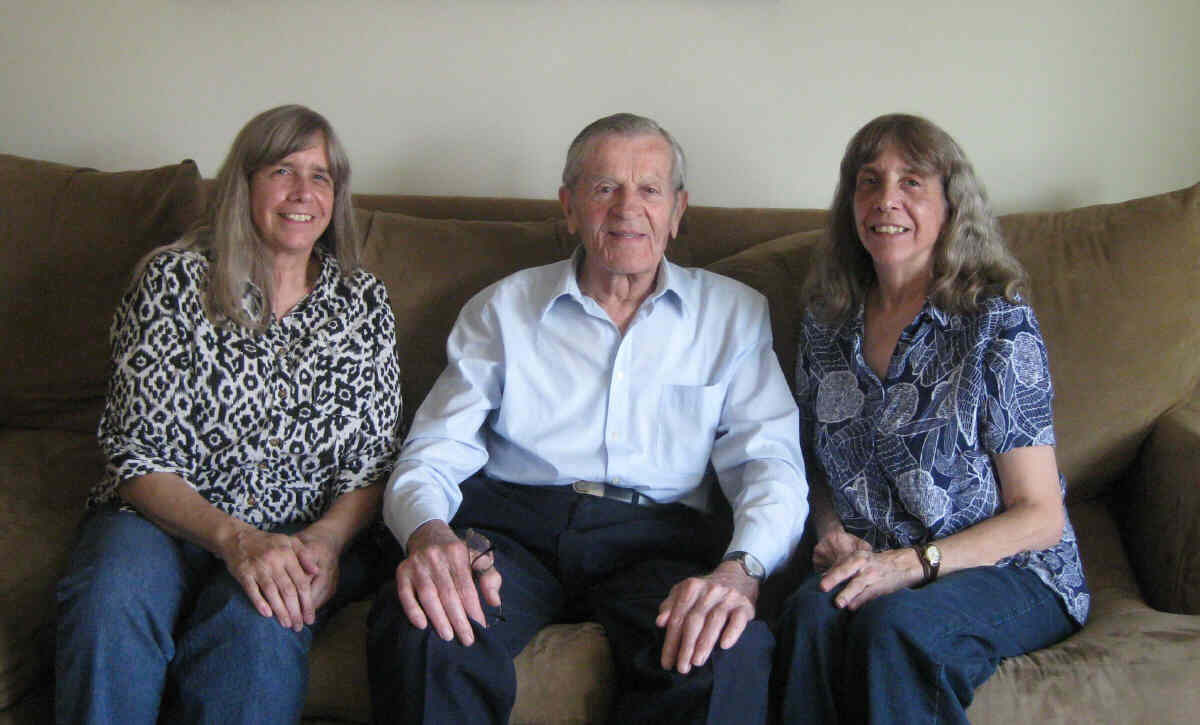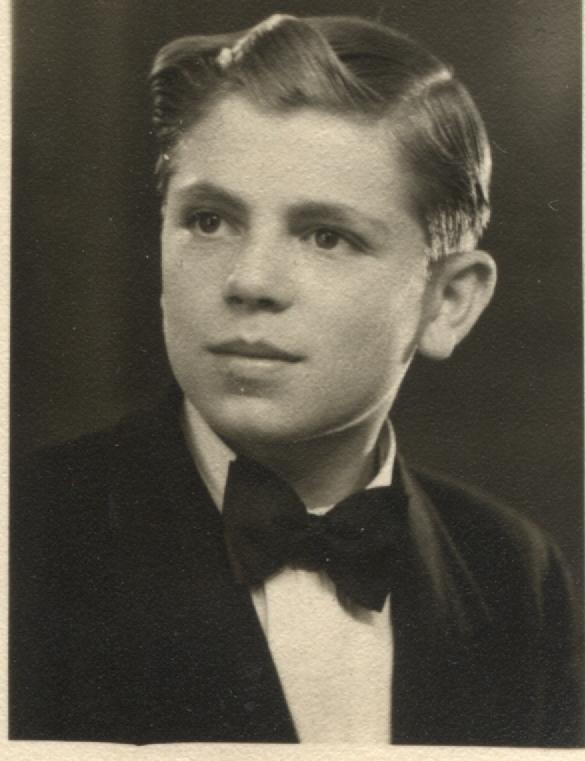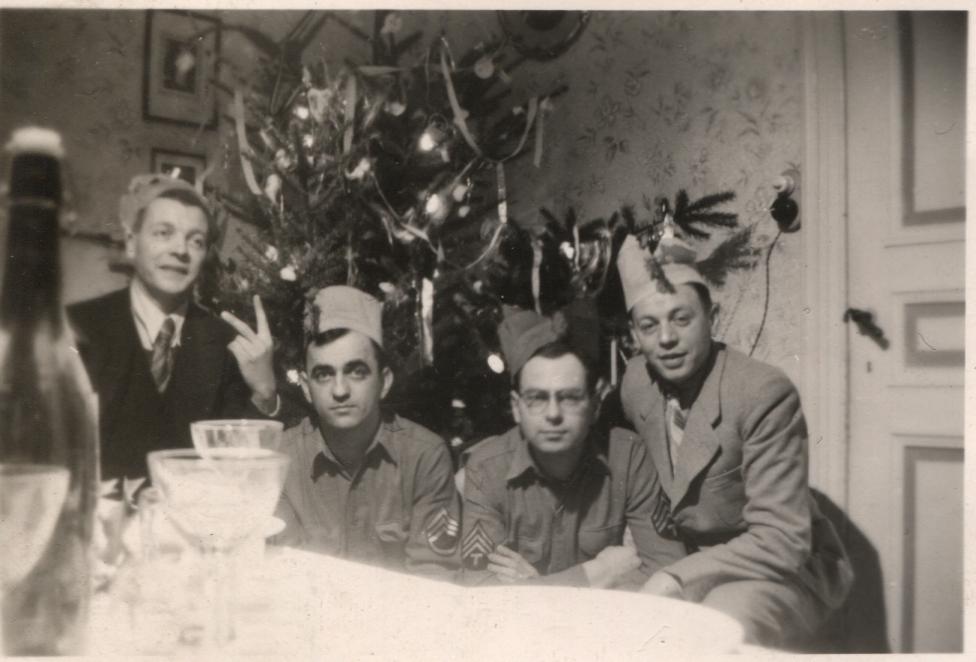
Through these letters and scrapbook they, along with this author, pieced together their father’s World War II story. Part of his story was that he became good friends with the Estievenart family in Belgium (who had six children) when the U.S. Army was camped there for several months. This friendship began after the U.S. liberated Belgium from the Germans. The Belgium people were grateful to the U.S. soldiers and many families welcomed the U.S. soldiers into their homes.

Ferdinand told us that he comes to the U.S. each year to visit his children who now live here in the U.S... He went on to say that the next time he visits, he would be thrilled to meet Anthony’s daughters Cathy and Cindy.

On July 23rd the day arrived and we got into the car for the drive to Baltimore. We discussed our concerns--how would the meeting go--would there be much to talk about or would it be an awkward afternoon? Soon after our arrival we met Ferdinand, now in his mid-80s was very sharp and a good story teller. Soon Anthony’s daughters (Cindy and Cathy) and Ferdinand had old photos out and the talk of the war and the friendships made flowed freely. We learned that Anthony kept in touch with the Estievenart family for many years after the war.

In 1940, four years before the Estievenart family met Anthony Musz, the Germans had conquered Belgium. Life was hard under the German occupation. Food was often scarce. One could be harassed, imprisoned, or even killed for a small or perceived violation. There was a curfew at night - everyone had to be home – or else. The Belgium people were forbidden from listening to the BBC (British News) on the radio. But that did not stop Ferdinand’s dad from listening - which he did quite often. But one time his dad was caught listening by the Germans. They responded by taking his father away to prison. The family worried about his fate, but he was released after several days of interrogation. There were a couple of other times when his father was taken away – for reasons that were unknown – but fortunately he was always released and returned home.

With the ongoing shortage of food there were times when the Estievenarts would not have enough food for all family members. In this situation the family would then feed the little ones first. Then, whatever was left over, if anything would go up the line to the older family members.

In October of 1944, the U.S. liberated Belgium. Ferdinand recalled what a glorious day that was. Soon after that they would meet Anthony Musz. He hung out at their home - often playing cards. They became very close; the Estievenart mom even did his laundry for him. Life was good and peaceful for three months in Belgium, but on December 17th 1944, the Germans in a surprise attack, entered Belgium again. The U.S. troops were caught off guard and pushed back. The Germans were once again taking over Belgium.

A couple of weeks after the German surprise attack the U.S. Army re-grouped, fought back hard, and kicked the Germans out of Belgium - this time for good. In early January, the Estievenart family was able to return to their home and celebrate Christmas. They had a big dinner party with Anthony Musz in attendance. Many pictures were taken that survive to this day.
Celebrate a (late) Christmas Dinner Together

At this special meeting last month in Baltimore each side was grateful to meet the other. They even brought gifts for each other. Anthony Musz’s daughters made a special photo book for Ferdinand with the old photos from their dad’s scrapbook - many photos included Anthony with the Estievenart family. Ferdinand was very moved as he began to look through the photos. There was not a dry eye in the room. In summary it was a great day - this special afternoon - a meeting between two families from different continents and different generations was absolutely amazing.